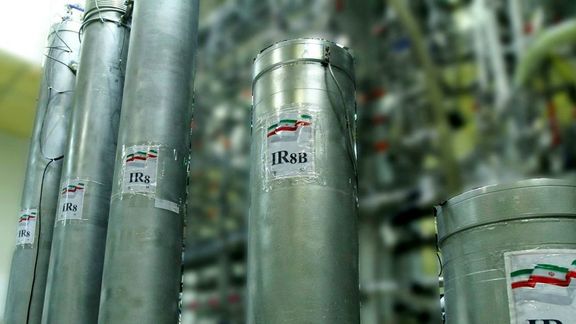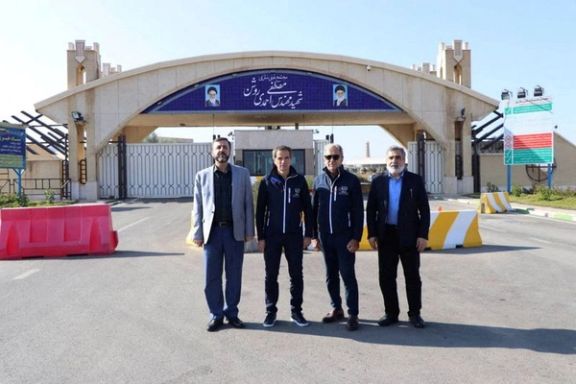Iran says it's prepared for countermeasures if censured by IAEA board


“The Atomic Energy Organization of Iran has prepared a list of countermeasures to be taken in the event of a possible anti-Iran resolution at the IAEA Board of Governors,” the organization’s spokesperson said in a televised interview.
“One part of our response is technical, and the other concerns the nature of our cooperation with the Agency. Certainly, the UN nuclear watchdog should not expect Iran’s broad and sincere cooperation to continue after such a move," Behrouz Kamalvandi said.
He warned that a resolution by the Board of Governors could prompt Tehran to activate a new scenario in its nuclear program and escalate its nuclear activities again.
The spokesman recalled that past warnings were ignored, leading Tehran to increase its 60 percent uranium production sevenfold, launch 20 cascades of centrifuges, and install new generations of centrifuges.
While acknowledging that the mere adoption of a resolution does not automatically trigger the so-called “snapback” mechanism under the nuclear deal, he stressed that Security Council decisions are ultimately political, not legal.

Kamalvandi said the challenges facing the country’s nuclear program are not technical but political in nature. “These challenges, which have intensified in recent years, stem from political pressure aimed at forcing Iran to abandon its achievements."
He dismissed the notion that Iran had ceased cooperation with the IAEA, noting that about 120 inspectors are still accredited for work in Iran, with 70 of them actively operating out of a special Iran office created by the agency.
“No other country has such an office under the direct supervision of the IAEA director general,” he said, adding that 22 percent of the agency’s inspections over the past year were conducted in Iran.
He also responded to renewed IAEA concerns about past nuclear activities at sites like Marivan and Lavizan (also known as Shiyan), where the agency suspects that natural uranium in metal disc form may have been used to produce neutron sources with explosive triggers. He said that these cases had already been investigated and closed back in 2014.
“The IAEA cannot prove diversion of nuclear material toward military use because Iran does not possess enriched uranium at weapons-grade levels,” he said. “So instead, it tries to build a narrative that there was once a military dimension to our program.”